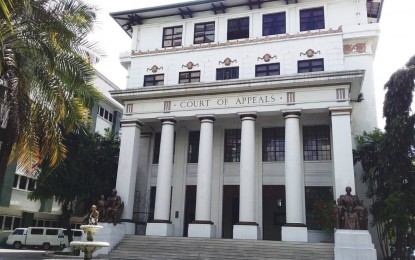
MANILA – The Court of Appeals (CA) upheld the legality of the divorce between a Filipino woman and her Japanese husband, citing that Japan's law does not prevent a remarriage for either of the parties in terminated marriages.
"The wording of the provision is absolute. The provision contains no other qualifications that could limit either spouse's capacity to remarry," the CA's Fifth Division said, referring to Article 728 of the Japan Civil Code, in its decision dated Oct. 30 and made public Thursday.
It provides that "matrimonial relationship is terminated by divorce" and "the same shall apply also if, after the death of either husband or wife, the surviving spouse declares his or her intention to terminate the matrimonial relationship".
The ruling penned by Associate Justice Maria Elisa Sempio Dy reversed a decision of the lower courts and granted a petition for recognition of the final judgment by the head of Ota Ku, a suburban area in Tokyo, dissolving the marriage of Japanese national Kazunori Takahashi and his Filipino spouse Jasmin Arcega.
The court reiterated precedents decided by the Supreme Court (SC) interpreting Article 26 of the Family Code where the SC said the provision should be interpreted to allow a Filipino citizen, who has been divorced by a spouse who had acquired foreign citizenship and remarried, also to remarry.
State lawyers had opposed the recognition of the divorce on technical grounds, citing among other things, that the certification issued by Japan's Foreign Ministry consular division official Naomi Asano and an authenticated English translation of the Ordinance for "Enforcement of Family Register Act" in Japan "have no probative value" because they were not "formally offered" and were only belatedly attached to the supplemental motion for reconsideration.
Brushing aside the opposition, the CA said "it has also been consistently held that the courts, for good reasons in the furtherance of justice, may permit additional evidence, though not formally offered, especially when it is newly discovered, or where it has been omitted through inadvertence or mistake, or where the purpose of the evidence is to correct evidence previously offered".
Associate Justices Mariflor P. Punzalan-Castillo and Carlito B. Calpatura concurred. (PNA)
